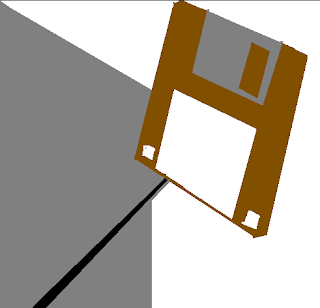Basically.
BASIC (standing for Beginner's All Purpose Symbolic Instruction Code) was written (invented) in 1963, at Dartmouth College, by mathematicians John George Kemeny and Tom Kurtzas as a teaching tool for undergraduates. BASIC has been one of the most commonly used computer programming languages, a simple computer language considered an easy step for students to learn before more powerful languages such as FORTRAN. (formula translation) You can read more about the evolution of BASIC at https://en.wikipedia.org/wiki/BASIC.
My first computer language was Fortran running on IBM type big iron. Came home from college and saw that my younger brother had purchased a home computer. It was a TRS-80 and came with built in BASIC. I asked my brother how to use it and he stated read the manual. So the next couple of days I devoured the information from the text. BASIC was very much like Fortran, so the transition to learn it was fairly easily. Ended up with the limited memory of the machine to create a program that would help you do a certain income tax form. It was neat.
As BASIC evolved on home computers, I also took advantage of it everywhere I could. like everyone back then you would scan every microcomputer magazine for the latest code. Began to build a library of programs that I liked to use. Not all computers used the exact same version of BASIC. So you have to translate code you have already written for that version. Today, it is called porting code when you adapt computer instructions from on computer to another. Eventually, a very popular version of BASIC was called qbasic and it was very standard compared to the past. Most people used BASIC to create computer games.
I do not know how many programs, I have written in BASIC. But usually the basic four were some kind of text editor, database, spreadsheet, and a terminal program (for use with a modem) for each platform (each different kind of computer). Now that I use Linux, two major programs allow you to create and use the ageless BASIC code instructions. They are Qb64 and Freebasic. Each of them have there own pluses and minuses.






Comments
Post a Comment